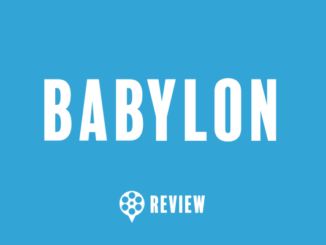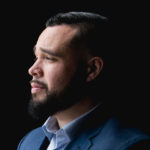Collider‘s editor-in-chief Steven Weintraub brought together quite the panel for Comic-Con@Home. Joining him were directors Robert Rodriguez (We Can Be Heroes), Colin Trevorrow (Jurassic World: Dominion), and Joseph Kosinski (Top Gun: Maverick) for a unique opportunity and in-depth discussion about directing. Weintraub’s idea was to get a few filmmakers who have directed big projects to share unique behind-the-scenes stories and how they each work on set. Many of the topics covered in the panel were just that including changes in the medium to directors of yesteryear, and what the future holds for filmmaking and directing overall.
Right off the jump, Kosinski talks about the large amount of time a director spends off a film set including the upfront time before the production of a movie, the preparation and nurturing of a script, and everything in between. Robert Rodriguez chimes in to talk about the “brain commitment” directing a film takes.
Pitching an Idea
Colin Trevorrow brings up the fact that pitching a film to a movie studio has changed since Rodriguez first started in the industry. Ten years ago, it was about the concept of art, and now, pitches need to include a compelling argument as to why the film should be made. A change in the process that I fully support. The film’s narrative is one of the most important things that make a film successful and often times, something that is missing from a lot of movies.
In regards to the directors’ nerves before a pitch meeting, Kosinski says that over time, it’s more important to be comfortable with your story and speak from your heart. If you’re passionate about it, it will naturally come across as something that will resonate with those in the room—a sentiment shared by both Rodriguez and Trevorrow. Rodriguez brings up a classic, Glengarry Glen Ross, about why it’s important to make your pitch to someone without them realizing that’s what you’re doing.
Fan Service
When it comes to big-budget franchises, the line between fandom and pleasing the audience, Trevorrow speaks about how older franchises are a belief system to fans. When you’re telling another chapter in that story, it becomes complicated. You have to respect the past and it’s possible to create a new story that can be passionately loved by a fanbase. Rodriguez added that no matter what, you’re never going to please every fan; therefore, you have to have the project resonate with the majority. Kosinski stated that the idea of fan service is a tricky thing because while it may please fans, it can come in the way of a director telling the story the way they want.
With their latest releases, Kosinski talked about lucking out with Top Gun: Maverick. The film is near completion. He did add that completing post-production has been quite the challenge and promised fans an enjoyable ride. On the other side, Trevorrow spoke about the challenges of production during the pandemic. He added the importance of supporting each other is a necessity for the cast and crew as they continue production of Jurassic World: Dominion.
Technology and Directing
The advancement and future of technology in the industry and how it has allowed them to see their vision come to life was the next topic. Trevorrow spoke about going back to the past regarding animatronics usage and how the CGI has advanced to the point where the skin can match the animatronic beautifully. Kosinski also worked with Sony to work on creating small 6K IMAX cameras to place in the cockpit of all the jets to capture realism in Top Gun: Maverick. Something I can’t wait to see once the film drops July 2, 2021.
What Almost Was?
When discussing projects that almost were theirs, Kosinski spoke of a film that would ultimately earn Academy Awards for Best Film Editing and Best Sound Editing, Go Like Hell, better known as Ford v Ferrari. He also revealed that he had a table read with Tom Cruise and Brad Pitt but that ultimately the project was taken from him when he couldn’t get the budget lower (primarily because of salary requests). For Trevorrow, it was directing Star Wars: Episode IX and accepting the heartbreak that came after he was pulled from the project.
Pinch-Me, Please
As the panel came to a close, each director spoke about the best “pinch-me moment” they experienced in their career. Kosinski spoke about Steven Spielberg coming to one of his VFX sessions. Rodriguez mentioned how Speilberg took him to meet his son and said, “This guy directed Spy Kids”, and Rodriguez thought, “Steven Spielberg’s son watches my movies.” Trevorrow spoke about the scoring of Jurassic World and how he introduced his father to Paul McCartney.
Overall, this panel was as in-depth and insightful as it gets. As a fan of the filmmaking process, hearing these three directors speak passionately about their craft was a treat. I’m looking forward to watching their upcoming work on the big screen.
Collider: Directors on Directing | Comic-Con@Home 2020
Questions Asked During the Panel:
- What would surprise people to learn about making a movie/directing?
- What is it like to pitch the studio on your vision for the movie?
- Do they get nervous the night before pitching the studio?
- What is it like sitting down for the first time with the person they want to cast in their film?
- What is it like making a movie that has built-in fans?
- How has technology shaped the way they have been able to make movies and what excites them about the future?
- What’s a detail or decision they had to fight for that they’re most proud of?
- What’s a project that almost made it into production but ultimately fell apart?
- Trailers and how they have to balance getting the casual moviegoer into a theater while also trying to keep spoilers under wraps.
- What’s been the biggest pinch-me moment of their careers?




